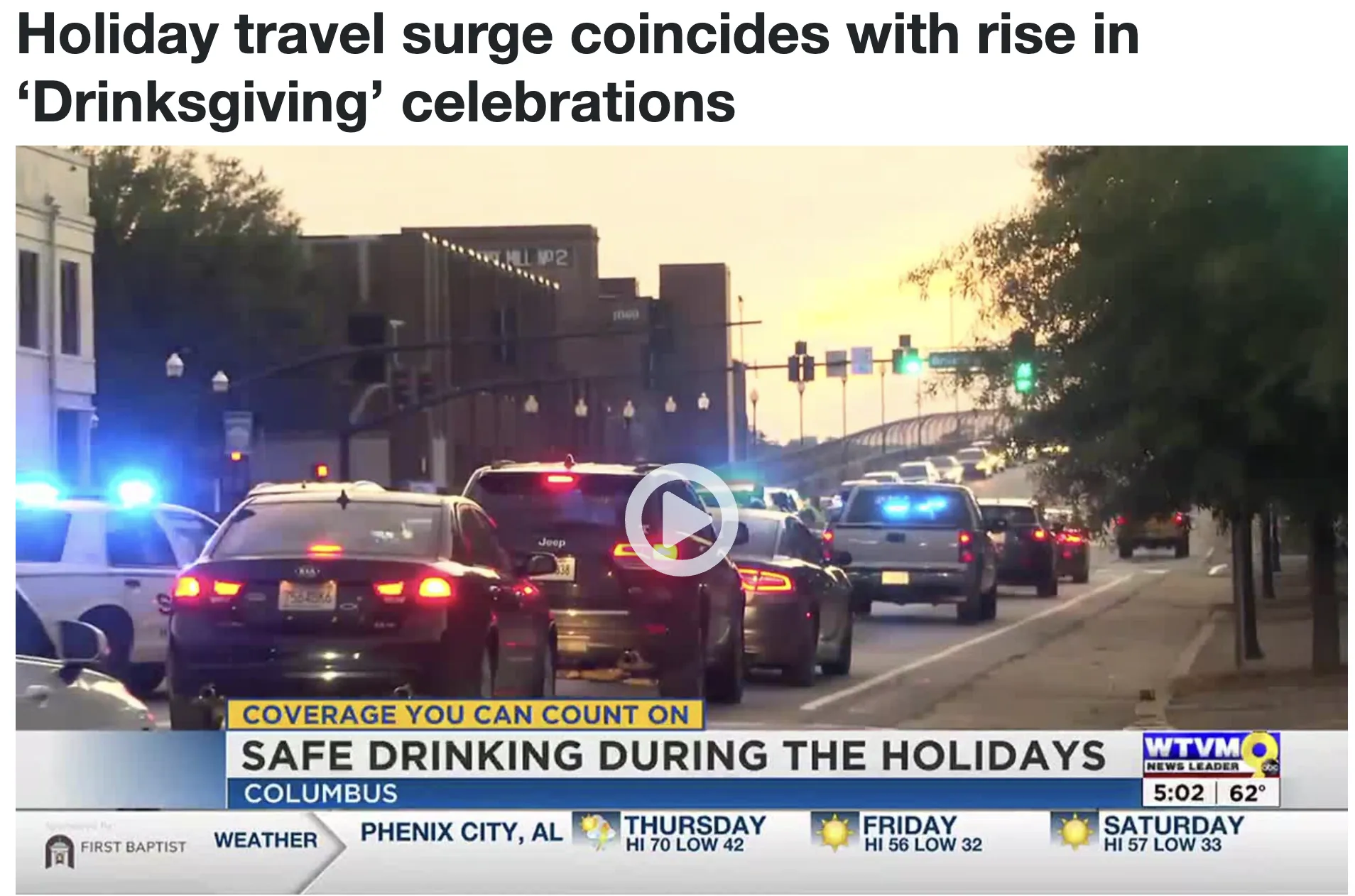Resources

During the summer months there's more opportunities to drink alcohol. WZZM13 spoke with Wholeview's Dr. Sarah Church, an addiction expert, about how to be more mindful about alcohol consumption. Read More

Understanding "Drinksgiving" and Its Impact on Holiday Travel as this unofficial holiday has become more popular.
As the holiday season approaches, a significant trend known as "Drinksgiving" or "Blackout Wednesday" is emerging. This event occurs the day before Thanksgiving and has become a popular occasion for college students to reunite with hometown friends over drinks before spending time with family.
Key Points:
Holiday Travel Surge: This year is anticipated to be the busiest holiday travel season ever, with 80 million people traveling for Thanksgiving.
Rise in Alcohol Consumption: On "Drinksgiving," alcohol sales have been reported to increase by 70% compared to other Wednesdays, highlighting its growing popularity.
Safety Concerns: The increase in social drinking raises concerns about potential negative consequences such as driving under the influence, which remains a critical issue. The legal blood alcohol concentration limit is 0.08% in both Alabama and Georgia.
Community Awareness: Experts like Sarah Church, CEO of Wholeview Wellness, emphasize the importance of enjoying social gatherings responsibly to avoid regrettable actions and ensure safety during the holiday celebrations.
Conclusion
While "Drinksgiving" offers an opportunity for socialization and reunion, it is crucial to prioritize safety and responsibility, particularly regarding drinking and driving. Enjoy the festivities but remain aware of the potential risks involved. Read More

This year, more people are leaving alcohol out of their holiday celebrations.
After years of debate over the healthiness of drinking, overwhelming research suggests that less is more. That has doctors are recommending no drinking over drinking in moderation.Then, a bombshell cancer study came along. Dr. Sarah Church, who’s treated substance use for 20 years, says it debunks the myth of moderate drinking.
“The heavier your alcohol use, the higher your cancer risk is and that’s for everything in the whole the digestive tract, so that’s everything from mouth and head and neck cancers to esophageal cancers, intestinal and colon cancer, all the way through,” Church said. “Breast cancer is actually associated with alcohol use, so that’s something people don’t necessarily know but it’s becoming more and more known throughout the research.” Read More

How to practice mindful drinking during the holidays Read More